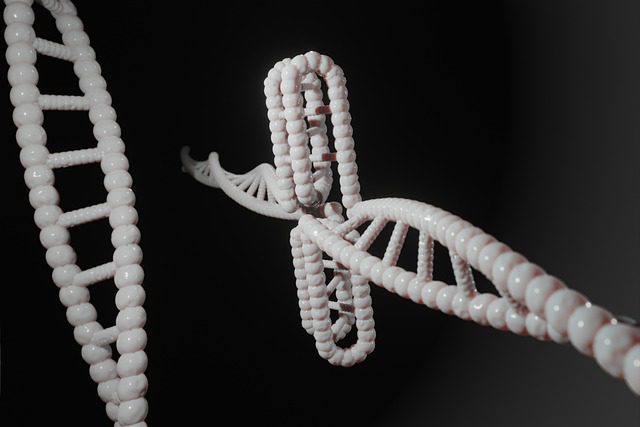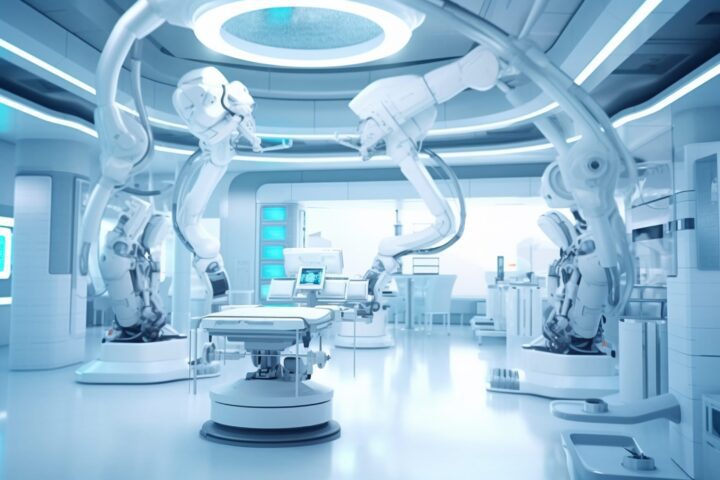Gene editing, probably more than any recent other development in biotechnology, promises the possibility of cures for genetic diseases and enhancements of human capabilities, not to mention revolutionary agriculture. It involves some sort of change induced in an organism with the use of very precise alterations in its DNA. Undoubtedly, one of the most popular gene-editing tools is CRISPR-Cas9, which allowed researchers to cut DNA at specific places and insert, remove, or change genetic material.
Gene editing became further powerful with the advent of AI. It would further be able to help a researcher in choosing which genes to edit and, with the prediction of modifications, hence editing those genes themselves. However, like all technologies that have proved to be game-changing, AI-abetted gene editing does not come without its ethical and practical problems.
What is Gene Editing?
Gene editing can be used to change the sequence of an organism’s DNA. From curing genetic diseases caused by mutations to making crops resistant against pests, and further onto enhancing human beings-there is an endless list of uses. At present, CRISPR-Cas9 is the commonly used gene-editing technology. It employs the use of molecular scissors that cleave the DNA at a really specific location. It allows for modifications in the genetic material through an insertion, deletion, or alteration at precisely that position.
Gene editing is highly promising and of utmost importance, though one of the key risks it does carry relates to unwanted effects brought about by mutations at locations other than the targeted area. It’s here that AI can enter the scenario with ways to diminish such risks thanks to higher precisions allowed to the gene editing technique.


How AI Enhances Gene Editing
AI could accelerate and extend gene editing in a number of ways. A few of the major ways in which AI enters this playing field are considered below.
1. Prediction of Gene Functions
One of the big challenges that comes with the process of gene editing is really knowing what a particular gene does. AI will, therefore, analyze big sets of data for prediction concerning the functions of genes, depending on their interaction, genomic positional patterns, and patterns that could be observed in its evolutionary process. For this reason, it is foreseen that by using this AI one could give him the ability for more focused gene edition methods toward the highly desired outcome, simply via high-precision forecasting.
- Efficiency Improvement: Instead of having to go through millions of genetic data manually, the work of AI would be pinpointing which genes are responsible for what in a very short time.
- Reducing Risk: Prediction of gene functions reduces the risk of accidentally causing harm due to editing genes of unknown or unintended effects.
2. Identification of Off-Target Effects
The major shortcoming of CRISPR-Cas9 is something called off-target mutagenesis: it causes other changes in DNA rather than from the site intended. These off-target effects can occasionally give harmful side effects, especially when the gene-editing tool applies to humans. Nowadays, AI can help researchers to predict or pre-identify those off-target effects for safe gene editing.
- Improved Safety: The prowess of AI algorithms is that these can simulate the likely outcomes of any treatment and also predict where such off-target mutations are likely to occur, in which case scientists change course to avoid the risk.
- Optimizing Precision: AI enhances the precision of gene editing by analyzing DNA sequences more likely to create off-target effects and offering safer alternatives.
3. Simplification of Gene-Editing Processes
It automates most of the processes, ranging from tool choice to designing superior experiments. With the work in question, AI will be able to suggest which genetic sequences should be targeted and will be able to simulate what could happen in association with any given editing action, freeing time and other resources for the researcher.
- Fast Research: AI algorithms let scientists find the editing more effectively much quicker than by any other method. That is, they speed up the general period of time needed to get what one is looking for.
- Improved Variants of Tools: The algorithmic process of AI can churn out improved varieties in the CRISPR variety for gene editing or any other tool implemented, as needed for efficiency in a process burdened less with error.
4. Predictive Analytics on Gene Changes
Apart from this, even long-term after-effects that a certain genetic editing may trigger could also be well forecasted with the help of AI. For example, suppose there is some procedure for a cure which includes some form of gene editing; it would therefore follow that once such a change does indeed occur in the body, what further unplanned medical problems will it create months/years down the line.
- Long-term Insights: AI simulation will enable researchers to consider the types of problems that could result from edits to genes not visible immediately.
- AI to Predict Consequences for Safer Treatments: Long-term assurance that gene therapies are to be safe and not intended to create new problems.


Ethical Issues Involved in AI-driven Gene Editing
While this is a great promise that the combination of AI and gene editing holds, it does raise a few critical ethical issues. A few of the more critical issues have been listed below.
1. Genetic modification of humans
Arguably, the most discussed applications of gene editing involve their application in human embryos. Technically, gene editing on embryos will prevent genetic disorders from the very outset-meaning, before birth. The downside of this is that it opens up a whole avenue where “designer babies” expose the possibility wherein intelligence, looks, aptitude-all could become selection factors as pertains to baby selection.
- Eugenics: The fear exists that gene editing may prove to be some form of modern eugenics, amplifying certain characteristics and ridding others. This could relate to issues of social inequality and discrimination.
- Consent: Any gene modification in an embryo presumes a lifetime decision that is not taken with their consent. That is, it is an ethical question when one decides on behalf of a human who shall exist in the future.
2. Equity and Access
AI gene editing is a very expensive technology, only accessible to rich people or countries. This would drive those with access to new genetic enhancements and treatments apart from others, hence making them feel much poorer in comparison.
- Health Access: This, by implication, deepens health disparity in view of the fact that AI and editing technologies would only be accessible to rich people.
- Global Inequality: Access to those technologies could further be concentrated within rich nations and thus make it more difficult for the poorer ones to keep pace with their ambitions to unlock new medical or agricultural insights.
3. Data Privacy and Security
Genetic AI depends on deep pools of genetic data out of which to base predictions and recommendations. Genetic information is extremely personal, and many are concerned about how this is stored, used, and protected.
- Data ownership: Who owns the genetic information, and who may use this information in research? Indeed, upon these two questions rests the whole ethical argument of AI-driven gene editing.
- Hacking: These AI systems for maintaining the information are very easily hackable, and grave privacy violation or worse, manipulations of this sensitive information for a variety of nefarious uses are easily resultant from such hacking.
4. Unintended Consequences
While the advent of AI rightly predicts outcomes and reduces the level of off-target effects, the complete stopping of after-effects from a genetic change by way of editing is almost impossible; this would, in a way, alter other genes and/or systems than meets the immediate eye.
Impact on Future Generations: Most of the gene edits, especially those concerned with embryos, would affect future generations right into centuries onwards. And some of those changes may pop up when, at that time, it will be beyond control to make amends.
Practical Effects of AI in Gene Editing
Besides ethical considerations, integrating AI into gene editing comes with its toll of practical challenges and implications. Let’s look at some of those.
Scaling Gene Editing for Agriculture
AI-assisted gene editing in agriculture can be the next revolution to take place in terms of increasing the capability of making crops resistant against pests, diseases, and environmental stress. However, regulatory issues associated with GMOs are challenges in some countries, posing an obstacle toward scaling up such technology in agriculture.
- Environmental Concerns: Gene editing can give strength to crops, but there is apprehension as to how modified organisms may affect the environment and natural biodiversity.
- Gene Editing in Medicine: Gene editing, along with AI, may come up with a new genre of medicine called precision medicine, according to the genes of an individual. However, practical challenges are:
- Cost and Accessibility: Most gene therapies, especially those enhanced with AI, tend to be overly expensive. The challenge would therefore remain in the means of access for such treatment by ordinary folk.
- Long-term Studies: Very long-term studies are needed to look at safety and effectiveness in humans involving CRISPAI gene editing, which could insinuate an element of doubt regarding their possible risks and benefit.


Limitations of AI
It’s imperfect because AI is only as good as it was trained on, and that in the case of this would be implications it might have for editing genes; the AI might or might not be perfectly predictive, especially in the case of some very rare or even poorly understood conditions.
Data Bias: If AI was trained from biased or incomplete data, then that results in errors while recommending gene editing and causing harm instead of a solution.
Too much reliance on AI has also been claimed to lead to one’s inability in developing critical thinking and hands-on expertise in gene editing.
In conclusion, gene editing can only turn unstoppable in driving innovation in medicine, agriculture, and biotechnology. AI enhances the precision, safety, and efficiency of gene editing-finally, probably predicting gene functions, reducing off-target effects, and optimizing processes. However, with such disrupting technology comes ethical and practical challenges.
Besides that, ethics regarding the change of human beings, genetics, growing inequality, but also data protection and security issues have come to light. Notwithstanding these significant practical challenges that must be duly taken into account: cost, regulation, limits of AI.
Somewhere down the line, there needs to be a balance that is struck by human beings: the value coming in via the AI-driven editing of genes balanced by regulation reflecting consideration for ethics in the uses of such technology, so as to decidedly serve responsible uses and improve society.


































What i do not understood is in truth how you are not actually a lot more smartlyliked than you may be now You are very intelligent You realize therefore significantly in the case of this topic produced me individually imagine it from numerous numerous angles Its like men and women dont seem to be fascinated until it is one thing to do with Woman gaga Your own stuffs nice All the time care for it up
This is the right blog for anyone who wants to find out about this topic. You realize so much its almost hard to argue with you (not that I actually would want…HaHa). You definitely put a new spin on a topic thats been written about for years. Great stuff, just great!
I got what you mean ,saved to bookmarks, very decent web site.